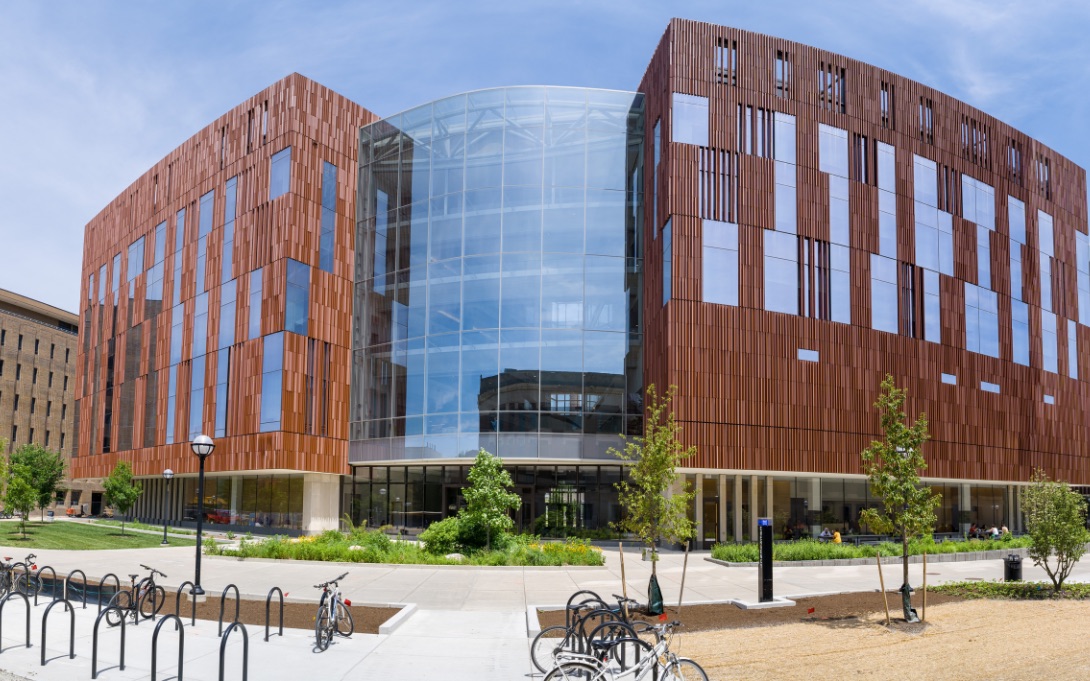
There is growing awareness that science and technology have profound impacts on all of us.
Advances in fields like artificial intelligence, biotechnology, and data science are rapidly shaping society and raising significant ethical and policy questions. The dizzying pace of development also highlights the need for academic programs that prepare students to understand the ramifications and help steer science, technology, and related public policies toward the public interest.
“Many programs across the country offer this kind of training,” said Shobita Parthasarathy, Director of the Ford School of Public Policy’s Science, Technology, and Public Policy Program (STPP) at the University of Michigan. “They tend to be led by humanities, social science, or public policy faculty, which enables in-depth training on the social, ethical, and policy dimensions of research and innovation. However, they are invariably underfunded and difficult for STEM students to access.”
A new STPP report, "Broadening Horizons," assesses the current landscape of STEM-in-society programs—systematic, multidisciplinary training that prepares professionals to understand how science, technology, engineering, or medicine intersect with ethics, policy, and society–and makes recommendations for how they can grow.
Having a deeper understanding of this education landscape is timely and salient, said Brooke Smith, director of Science and Society at the Kavli Foundation, which funded the study. “At a time that more early career science and technology students are interested in careers focused on the societal implications and context of science, and a time when society expects so much from science—ensuring we are training the next generation to work at this interface is crucial. As interest and demand has sky rocketed, it’s important to take stock of what training programs there are, what they do, and what we know about efficacy, so that we can most efficiently and effectively prepare students for careers and work at these boundaries.”
“STEM-in-Society programs enable students across a range of disciplines to grapple with the world’s most serious challenges, which have technical, social, ethical, and public policy dimensions,” Parthasarathy said. “Graduates from these programs go on to pursue careers in science and technology policy, become responsible scientists and innovators, or develop as scholars who study the intersection of science, technology, and society and can contribute to better public understanding.”
STPP’s report helps funders and administrators foster the development of these programs while enabling existing programs to learn from one another. The comprehensive study identifies 247 programs across 90 U.S. higher education institutions that apply insights from the humanities and social sciences to better understand what seem, on their face, to be purely technical problems. The study included a survey and multiple in-depth case studies that included interviews with program leaders, students, and alumni.
“Growing evidence that new technologies can disproportionately impact, and sometimes harm, some communities has increased interest in STEM-in-Society programs on college campuses,” said Erin Burkett, who led the study. “However, despite their proven value to foster interdisciplinary collaboration and responsible scientific research that considers social context, STEM-in-Society programs are often overlooked and undervalued by university administrators and underserved by funding organizations.”
Key Findings:
- Approximately 247 STEM-in-Society programs are identified at 90 higher education institutions across the U.S., with the majority housed in R1 universities.
- STEM-in-Society curricula primarily focus on science and technology studies, bioethics, and science and technology policy, but gaps remain in continuing professional education.
- Programs are instrumental in shaping alumni who pursue diverse careers across sectors such as academia, government, and industry.
- Beyond individual learning outcomes, their faculty, students, alumni, and publications are helping to transform STEM fields and are also providing crucial expertise on science and technology in the public interest to policymakers, advocacy organizations, and citizens.
- Despite their importance, these programs often face precarious funding and structural challenges due to their interdisciplinary nature and smaller student enrollments.
Recommendations for Stakeholders:
- Funding Organizations and National Entities: Develop long-term funding to support existing STEM-in-Society programs, while recognizing their unique institutional goals.
- University Administrators: Enhance institutional resources, remove participation barriers, and integrate STEM-in-Society education into broader academic objectives.
- Program Leaders: Focus on broadening student recruitment, enhancing career support, and leveraging alumni networks to demonstrate program value.
STPP will host a webinar on STEM-in-society programs on April 10 at 4pm. For more information and to register for the webinar, click here.
About the Science, Technology, and Public Policy Program
The University of Michigan’s Science, Technology, and Public Policy (STPP) program is a unique research, education, and policy engagement center concerned with cutting-edge questions that arise at the intersection of science, technology, policy, and society. It is dedicated to a rigorous interdisciplinary approach, and working with policymakers, engineers, scientists, and civil society to produce more equitable and just science, technology, and related policies. Housed in the Ford School of Public Policy, STPP has a vibrant graduate certificate program, postdoctoral fellowship program, applied research projects, public and policy engagement activities, and a lecture series that brings to campus experts in science and technology policy from around the world. Our affiliated faculty do research and influence policy on a variety of topics, from national security to energy.
This research was supported by The Kavli Foundation.
The Kavli Foundation is dedicated to advancing science for the benefit of humanity. The foundation’s mission is to stimulate basic research in astrophysics, nanoscience, neuroscience and theoretical physics; strengthen the relationship between science and society; and honor scientific discoveries with The Kavli Prize. Learn more at kavlifoundation.org and follow @kavlifoundation.
